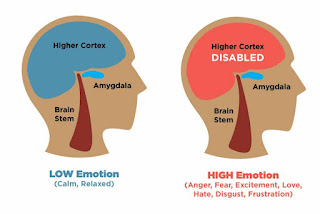Interlingual Homographs or False Friends
Some words are spelled and might be phonologically the same but have different meanings, so called homograph. In English for example, bank can mean many things. Dictionary entries such as Cambridge Advanced Learner's Dictionary list its meaning into money, river, mass, medical, machines, and turn. Another example is the word organ which can mean a part of body or a music instrument. They exemplify the homograph within a language. However, homograph can also occur across languages, so called interlingual homographs or false friends.
That linguistic phenomenon can easily be found between Javanese and Madurese. Those languages are spoken in East Java, Indonesia but ends up with differences in terms of their forms and meanings. Geographically, those regions are independent (separated by Madura Strait) but are under the same governmental control. Words such as cekkel, mantan, ente' are pronounced in the same way, but refer to distinct meanings. Cekkel in Javanese means to hold, while choke in Madurese. Mantan also means two different things in the given languages: ex-wife/husband in Javanese but bridegroom in Madurese. Ente' also exemplifies interlingual homographs which means done, run out, or exhausted in Javanese but means wait, hold in Madurese.
Interlingual homographs misunderstanding is phenomenal among bilingual/multilingual speakers, or they are who are familiar with those languages but do not recognize their meanings accurately. Since examples indicate complete differences in meaning, speakers from both languages react differently and to some extent, generate laugh-out-loud. When the Javanese sellers of fried rice told their customers by saying "nasinya ente" (the rice is sold out), the Madurese speakers are going to wait for next service as it is understood that you need to queue for next turn.
Another context of the interlingual homograph can lead to misunderstandings is that when instruction by (older/stranger) Javanese is given to a Madurese kid by saying cekkelen are' iku (hold that kid). The kid might be escaping since, according to his/her understanding, he/she will be choked (it stops breathing because something (hand) is blocking your throat).
New language learners or people who just move or visit (Java for Madura or Madura for Java) normally experience misunderstanding due to false friends. Their first linguistic knowledge is automatically applied to the given conversation context. Therefore, it is understandable that their brain works according to their first linguistic repertoire.
Instead of negative impacts of its use, interlingual homographs or false friends exemplify cross language phenomena which to some extent, can facilitate or inhibit word recognition. Bilingual speakers might process the different languages quicker or slower, which are influenced by a number of factors, such as word frequency, length effects, or neighborhood.


Comments
Post a Comment